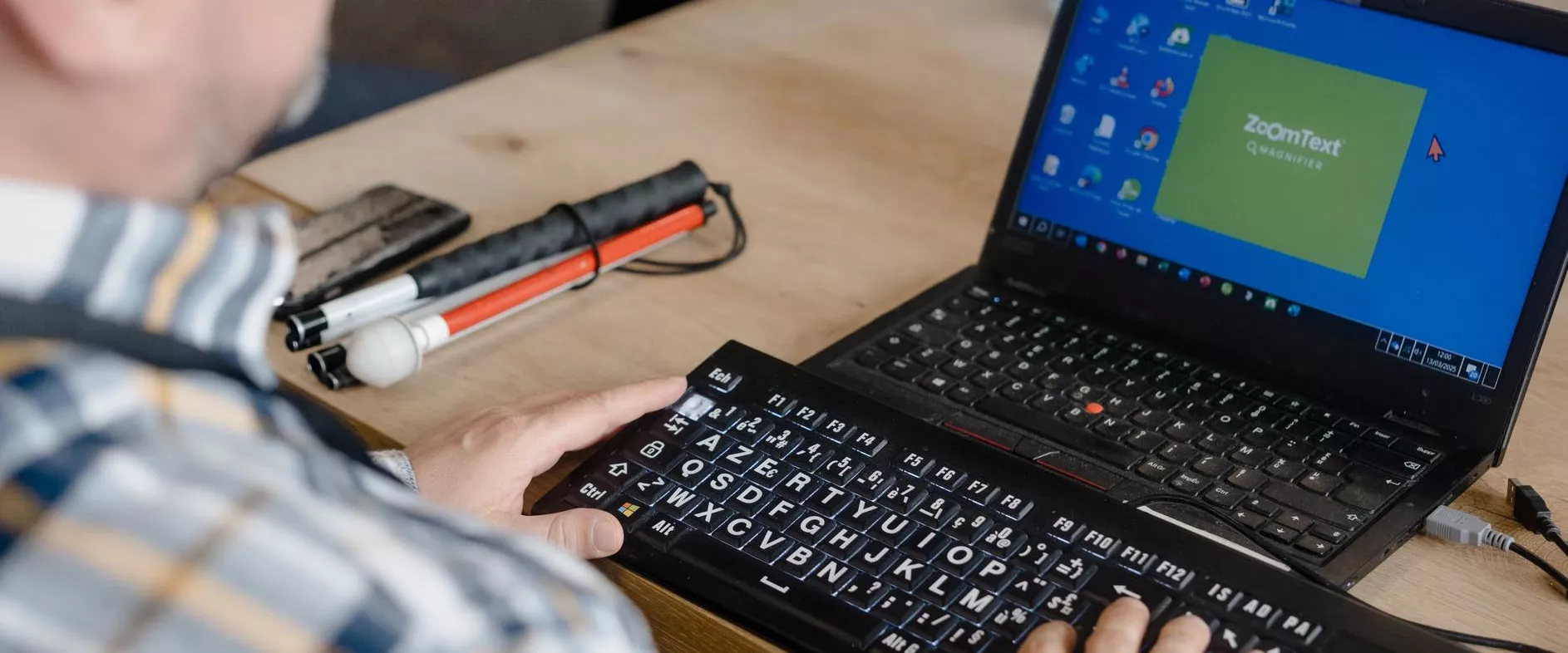
If you have a disability, you’ll find your place at SNCF
It’s a well-known fact—people with disabilities can struggle to secure and retain a job. At SNCF, we refuse to see this as a foregone conclusion. We’re committed to hiring, accommodating, and supporting the career development of people with disabilities.
SNCF, committed to social responsibility
Every day, we benefit from the skills of 7,328 employees with disabilities, who contribute to every area of our business. Our commitment is clear: enable everyone to find their place at SNCF.
Fighting discrimination for over 30 years
In 1992, we launched Handicap & Emploi (Disability & Employment), our initiative for integrating and retaining workers with disabilities. Thanks to this proactive approach, our stats for employees with disabilities continue to rise.

6.16%
of our employees were workers with disabilities in 2024

7,850
is the number of workers with disabilities we employed end 2024
2,648
is the number of workers with disabilities who benefit from workplace adjustments
A collective agreement
On 31 January 2022, we signed our ninth collective agreement on employment for people with disabilities with three trade unions. This three-year accord sets our disability hiring targets at:
- 225 work-study trainees
- 240 hires, or a minimum of 2.2% of total new SNCF hires by end 2024
The collective agreement also includes measures to keep workers with disabilities on the job. This is a crucial issue as 85% of disabilities emerge in mid-career, due to illness or accident.
Our aims
- Reach the legal requirement of at least 6% of the workforce by end 2024
- Hire more employees with disabilities
- Implement the collective agreement commitments (the Group HR department is responsible for this)
- Invest €3 million a year to support our workers with disabilities
It’s only your skills that count
All our positions can be filled by people with disabilities. If necessary, we accommodate workstations by providing ergonomic chairs, hearing aids, special software, and other equipment tailored to their work setting.
Disability representatives across France
Our Handicap & Emploi (Disability & Work) representatives are fully committed to their roles, going above and beyond to support not only employees with disabilities, but also their managers and HR staff seeking information.

78%
of employees with disabilities have “invisible” conditions

916
workers completed the process to be recognised as an employee with disabilities in 2022

240
workers with disabilities will be recruited by end 2024—that’s our target
Having your disability recognised ...
Many workers with lasting health challenges aren’t aware that they can be recognised as having a disability if they meet RQTH (Reconnaissance en Qualité de Travailleur Handicapé) criteria. This entitles them to certain benefits and adjustments in the workplace.
... can make your day-to-day life much easier.
Our representatives are there to help you complete this process. It could result in adjustments to your workstation or working conditions, help you get training, and help stay employed.
What we’re doing to recruit more individuals with disabilities
We’ve launched several initiatives to encourage people with disabilities to apply for jobs with us—and we also promote their recruitment, notably through work-study training programmes.
Fighting prejudice with video
We marked European Disability Employment Week by releasing a web series called “Handicapé.e n’est pas mon métier” (Disabled isn’t my profession). In them, SNCF employees with disabilities discuss their jobs. Along the way, they show that their conditions have not prevented them from thriving or progressing at work.
Moussa, in charge of passenger boarding assistance at SNCF
Job shadowing for employees with disabilities
SNCF regularly participates in DuoDay, a workplace disability awareness event organized in France by the Ministry of Solidarity, Autonomy and Disabled Persons. Over the course of the day, or half-day, volunteer employees and teams welcome people with disabilities, show them what they do for a living, and help them decide which profession they’d like to pursue.
Share the article